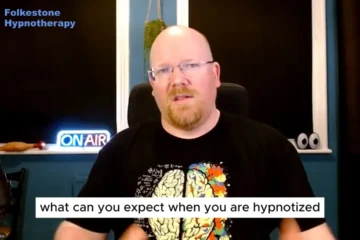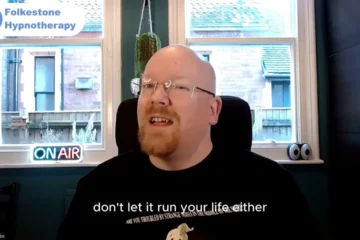Those brilliant doctors and researchers at Stanford University School of Medicine have discovered the answer –
New research from Stanford reveals the neural changes associated with hypnosis, and how these changes affect people in the state of hypnosis.
Dr David Spiegel, associate chair of psychiatry at the Stanford University School of Medicine and his colleagues found the power of hypnosis to alter the mind and body, is due to altered activity and connectivity in three specific areas of the brain. This is reported in a study published on line July 28th in Cerebral Cortex.
Despite the emerging recognition of the clinical potential of hypnosis there have been no previous studies on what happens in the brain whilst hypnotised. We have until now only been able to say that ‘we know it’s not the same as sleep’.
This key new evidence allows better understanding for all of us as to how and why hypnosis works. Importantly, it could help to persuade potential clients of the potential benefits of Clinical Hypnotherapy and hypnosis.
The reported affects are:
People highly susceptible to hypnosis experienced three distinct brain changes while hypnotized that weren’t present when they were out of the trance, the study reports. These changes weren’t detected in the brains of those with low hypnotic capability.
People in a trance experienced a decrease in activity in an area called the dorsal anterior cingulate, part of what’s called the brain’s salience network. “It helps us compare context and decide what is worth worrying about and what isn’t,” Spiegel said.
Hypnotized people also experienced an increase in connections between the dorsolateral prefrontal cortex and the insula. The prefrontal cortex helps us plan and carry out tasks, while the insula helps the mind connect with the body.
“In hypnosis, we know you can alter things like gastric acid secretion, heart rate, blood pressure and skin conductance,” Spiegel said. “Your brain is very good at controlling what’s going on in your body, and the insula is one of the pathways that does that.”
Finally, people in hypnosis also have reduced connections between the task-oriented dorsolateral prefrontal cortex and the brain’s default mode network, a region most active when a person is daydreaming rather than focusing on the outside world.
This decrease in connectivity likely represents a disconnect between someone’s actions and their awareness of their actions, Spiegel said. Such a disassociation allows the hypnotic subject to engage in activities suggested by a hypnotist without becoming self-conscious of the activity.
Taken together, these brain changes match well-known outward effects caused by hypnosis, Spiegel said.
A hypnotized person is intensely focused but not worried about what they’re doing. They are not worried about evaluating instructions, but are simply following those instructions, and they have a more direct connection between their minds and the physical function of their bodies, he noted.
“This is the first time that we’ve shown what’s going on in the brain when a person is hypnotized,” Spiegel said. “This is a natural and normal brain function. It’s a technique that has evolved to enable us to do the routine things routinely, and deeply engage in the things that matter to us.”
Based on this knowledge, doctors might be able to enhance hypnotic response in ways that better help treat medical conditions, he said. Already, hypnosis has been proven to help people quit smoking or cope with pain and stress, the authors noted.
This study provides “important evidence” that could help convince skeptical patients of hypnosis’ potential benefits, said Guy Montgomery, who specializes in integrative behavioral medicine at the Icahn School of Medicine at Mount Sinai in New York City.
Dr. Alan Manevitz, a clinical psychiatrist with Lenox Hill Hospital in New York City, agreed.
This research could also benefit those who are presently considered not to be susceptible to hypnosis –
Dr David Spiegel the senior studies author describes the neural changes, and suggests how this discovery paves the way to developing treatments to allow those who are not yet susceptible to hypnosis to become so.
“For some people, hypnosis is associated with loss of control or stage tricks. But doctors like Spiegel know it to be a serious science, revealing the brains ability to heal medical and psychiatric conditions.”
“Dr David Spiegel, MD, professor and associate chair of psychiatry and behavioural sciences at Stanford says “Hypnosis is the oldest Western form of Psychotherapy, but it’s been tarred with the brush of dangling watches and purple capes,” said Spiegel, who holds the Jack, Samuel and Lulu Wilson Professorship in Medicine. “In fact, it’s a very powerful means of changing the way we use our minds to control perception and our bodies.”
Sources:
SOURCES: David Spiegel, M.D., associate chair, psychiatry, Stanford University School of Medicine, Stanford, Calif.; Guy Montgomery, Ph.D., associate professor and director, Integrative Behavioral Medical Program, Icahn School of Medicine at Mount Sinai, New York City; Alan Manevitz, M.D., clinical psychiatrist, Lenox Hill Hospital, New York City; July 28, 2016, Cerebral Cortex
Last Updated: Jul 28, 2016



0 Comments